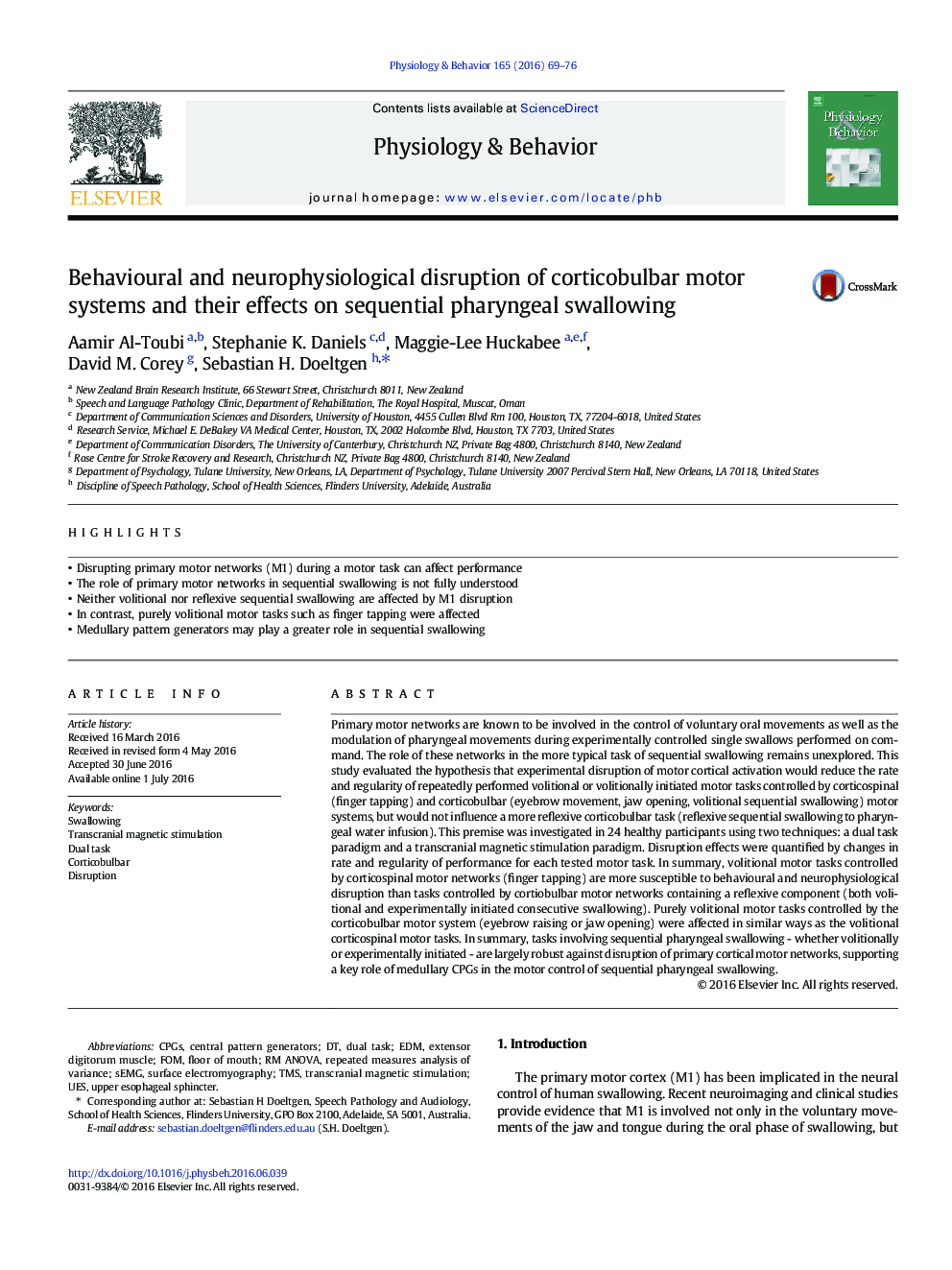| کد مقاله | کد نشریه | سال انتشار | مقاله انگلیسی | نسخه تمام متن |
|---|---|---|---|---|
| 5922760 | 1571154 | 2016 | 8 صفحه PDF | دانلود رایگان |
- Disrupting primary motor networks (M1) during a motor task can affect performance
- The role of primary motor networks in sequential swallowing is not fully understood
- Neither volitional nor reflexive sequential swallowing are affected by M1 disruption
- In contrast, purely volitional motor tasks such as finger tapping were affected
- Medullary pattern generators may play a greater role in sequential swallowing
Primary motor networks are known to be involved in the control of voluntary oral movements as well as the modulation of pharyngeal movements during experimentally controlled single swallows performed on command. The role of these networks in the more typical task of sequential swallowing remains unexplored. This study evaluated the hypothesis that experimental disruption of motor cortical activation would reduce the rate and regularity of repeatedly performed volitional or volitionally initiated motor tasks controlled by corticospinal (finger tapping) and corticobulbar (eyebrow movement, jaw opening, volitional sequential swallowing) motor systems, but would not influence a more reflexive corticobulbar task (reflexive sequential swallowing to pharyngeal water infusion). This premise was investigated in 24 healthy participants using two techniques: a dual task paradigm and a transcranial magnetic stimulation paradigm. Disruption effects were quantified by changes in rate and regularity of performance for each tested motor task. In summary, volitional motor tasks controlled by corticospinal motor networks (finger tapping) are more susceptible to behavioural and neurophysiological disruption than tasks controlled by cortiobulbar motor networks containing a reflexive component (both volitional and experimentally initiated consecutive swallowing). Purely volitional motor tasks controlled by the corticobulbar motor system (eyebrow raising or jaw opening) were affected in similar ways as the volitional corticospinal motor tasks. In summary, tasks involving sequential pharyngeal swallowing - whether volitionally or experimentally initiated - are largely robust against disruption of primary cortical motor networks, supporting a key role of medullary CPGs in the motor control of sequential pharyngeal swallowing.
Journal: Physiology & Behavior - Volume 165, 15 October 2016, Pages 69-76
